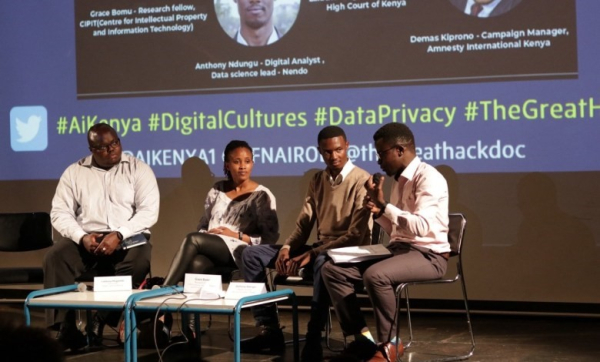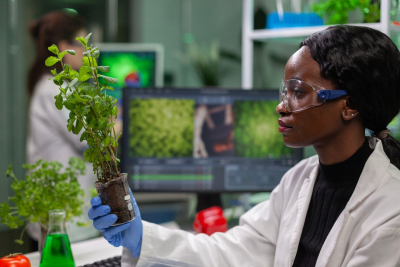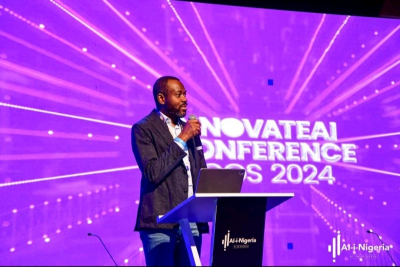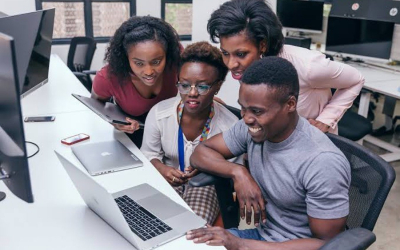
Brief (431)
CcHub has partnered with the Mastercard Foundation to support edtech startups focused on improving learning outcomes and expanding access to quality education in Africa.
The program offers $100,000 in equity-free funding, expert mentorship in design, product development, and technology, and connections to investors to help startups scale.
Eligible startups must be Africa-focused, incorporated in Nigeria, and provide solutions addressing challenges in K-12 education, tertiary education, or vocational training. The program encourages inclusive teams and especially welcomes female-led startups.
Applications are open until January 31, 2025.
Nairobi will host the AI Kenya Breakfast Summit 2025 on January 29 at Mövenpick Hotel from 7:00 AM to 11:30 AM. The event, themed “Transformative AI From Efficiency Gains to Strategic Advantage,” will explore AI’s potential to enhance efficiency and provide strategic benefits for businesses in East Africa.
Topics will cover AI adoption in East Africa, partnerships to unlock AI’s potential, and using AI for efficiency and strategy. Attendees can network with leaders, explore partnerships, and gain actionable insights to drive AI-led innovation in 2025.
Zimbabwe, in partnership with the Food and Agriculture Organization (FAO), is establishing digital hubs in Bikita and Mhondoro-Ngezi districts under the Fostering Digital Villages Through Innovative Advisory and Profitable Market Services in Africa (FDiVi) project.
The hubs will serve over 5,000 residents, offering affordable internet access, digital skills training, and tools to improve efficiency across the agricultural value chain.
The initiative will empower smallholder farmers, agro-dealers, processors, and extension officers, particularly women and youth, to participate in the digital economy. It is expected to close the digital divide, enhance rural livelihoods, and foster a more inclusive agricultural sector in Zimbabwe.
Network International (Network), an enabler of digital commerce in the Middle East and Africa, has partnered with Money Fellows, the top money circles app, to introduce its first payment solution in Egypt. The partnership was announced on January 8.
Network will provide its ‘Digital Payments as a Service’ platform, offering secure payment functionality, advanced fraud prevention, and managed back-office services. The integration aims to enhance the app’s user experience and versatility.
With its regional expertise, Network will support Money Fellows' expansion across the Middle East and Africa, helping modernize money circles and expand financial access.
InnovateAI Lagos 2025, the second edition of AI in Nigeria’s flagship conference, will occur on February 21, 2025, at the Landmark Event Centre in Lagos.
Under the theme “AI and the Future of Work,” the conference will examine AI’s impact on reshaping skills, recruitment, and workforce roles, focusing on innovation in key sectors such as agriculture, healthcare, education, and finance.
Speakers will include leaders from global tech firms, Nigerian banks, agritech innovators, and AI researchers addressing topics such as workforce reskilling and ethical AI development.
Visa has launched the Visa Accelerator Program, a three-month initiative to support African startups in transforming the financial landscape. The program targets seed to Series A startups with market-ready solutions addressing key challenges in FinTech.
Startups must have a minimum viable product (MVP), proven market traction, and operations in Africa or plans to expand on the continent.
Participants will gain access to Visa’s technology, mentorship, and global network to scale their innovations. Applications close on March 15, 2025.
Egypt is set to host the Data Science and AI Conference (DSC) MENA 2025 from April 10 to 12, 2025, in Cairo, the Ministry of Communications and Information Technology (MCIT) announced on January 2, 2025.
The event will gather over 1,500 participants and 90 speakers to discuss 25 topics shaping the future of AI and data science in the region. Sessions will focus on AI advancements, societal impacts, governance frameworks, and industry applications.
The conference begins with two days of online training and tutorials, concluding with an in-person event on April 12 at Egypt University of Informatics (EUI) in Knowledge City.
The HealthTech Hub Africa (HTHA) is now accepting applications for its 2025 cohort, seeking African ventures with innovative solutions to improve public health systems.
Applicants will be evaluated on the impact, product reliability, team expertise, market alignment, and scalability of their solutions within public health systems.
The hub offers mentorship, funding, and platforms to scale innovations to advance digital transformation and equitable healthcare access. Applications close on January 17, 2025.
On December 18, the African Development Bank announced a $10 million investment from its Sustainable Energy Fund for Africa (SEFA) to support the Persistent Africa Climate Venture Builder Fund (ACV Fund) in advancing climate technology entrepreneurship across Sub-Saharan Africa.
The Fund will address critical financing needs for early-stage climate technology entrepreneurs, focusing on key sectors, including solar energy solutions, energy efficiency technologies, electric mobility, agricultural technology, and circular economy innovations.
The initiative emphasizes supporting African entrepreneurs, particularly women-owned and -managed businesses, including the creation of over 66,000 jobs, with a significant portion benefiting women.
The seventh edition of the Africa Tech Summit Nairobi, powered by Nigerian fintech Raenest, will take place on February 12-13, 2025, at the Sarit Expo Centre.
It will feature a B2B summit, exhibition, and awards ceremony, focusing on four key tracks: Africa Money & DeFi Summit; Africa Climate Tech & Investment Summit; Africa Startup Summit; and Africa Mobile & App Summit.
The event will bring together over industry leaders, corporates, investors, and international delegations to explore Africa’s tech landscape.
More...
Veeam Software and ITWeb will co-host a free webinar on Data Resilience for Africa on February 5, 2025, focusing on innovative solutions for secure and reliable data management.
The webinar will cover the new Veeam Data Cloud Vault v2, its Zero Trust Data Resilience approach, secure off-site cloud storage, and predictable cloud storage costs. It is aimed at CIOs, IT managers, backup administrators, SMB system administrators, and network administrators.
The event will showcase how Veeam’s tools enhance data backup, recovery, security, and availability across cloud, virtual, physical, SaaS, and Kubernetes environments.
Eyone, a Senegalese company specializing in digital healthcare, has raised $1 million to strengthen its position in the sector and expand across Africa.
The funding, announced on December 6, includes $855,000 from the Sonatel Group through its VIF (Véhicule d’Investissement et de Financement) fund and $145,000 from Banque Internationale pour le Commerce et l’Industrie du Sénégal (BICIS).
This funding will support Eyone’s plans to expand to other African countries, develop AI-powered medical solutions, and include more specialized healthcare professionals.
Qualcomm has opened applications for the 2025 Qualcomm® Make in Africa Startup Mentorship Program. The initiative empowers early-stage startups using advanced connectivity and processing technologies.
The program offers business coaching, engineering consultations, and IP guidance to help turn ideas into market-ready solutions. Participants will receive personalized mentorship from Qualcomm leaders, gaining insights into product development and market strategies.
The application deadline is February 16, 2025.
InternCity Hub, a platform empowering young African tech enthusiasts, launched virtually on December 10 with an 8-week virtual bootcamp aimed at bridging the gap between education and industry demands.
The program provides hands-on experience in Frontend Development, Backend Development, Product Design, Product Management, Data Analysis, and Digital Marketing.
The initiative addresses youth unemployment by equipping participants with practical skills tailored for the tech industry. The next Cohort starts January 30, 2025.















